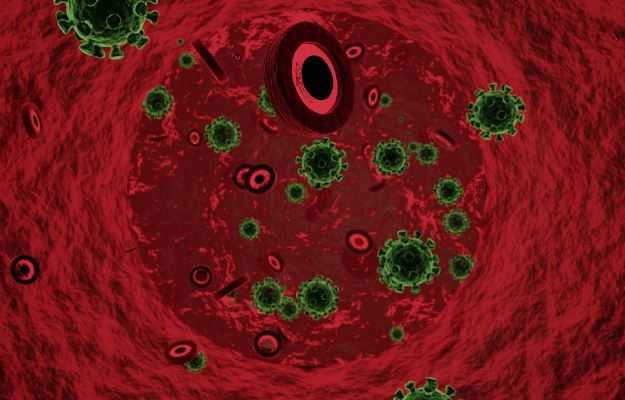Viremia refers to the presence of a virus (or various viruses) in the blood. Viruses are small acellular organisms comprising infective genetic material encased in a protective protein envelope. In order to survive, replicate and perpetuate, viruses need to invade living cells. Viral infections can affect all cells in the human body, including blood cells. After the invasion, the virus fuses its genetic material with the host cells, thereby modifying and potentiating the host cell to produce more of the virus. However, passive viremia wherein viral replication does not occur in the bloodstream (as with mosquito bites, where the dengue virus is simply introduced into the human host but does not multiply) can also occur.
After invading the bloodstream through the primary site of infection, viruses may remain limited to the circulatory system and primary site (like the measles virus) or spread to other organs to replicate more effectively (as with the rabies virus) and then once again enter the blood, producing secondary viremia.

 Doctors for Viremia
Doctors for Viremia 











































